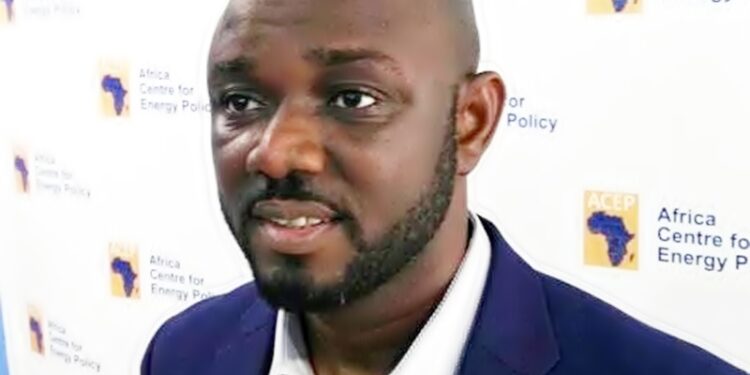Ghana to Spend GHS 30bn Over Medium-term to Subsidise Power – ACEP’s Benjamin Boakye
Executive Director of the Africa Centre for Energy Policy (ACEP), Benjamin Boakye, has raised concerns over the country’s ballooning energy subsidies, warning that Ghana’s current management of the power sector is unsustainable and draining resources needed for social and infrastructural development.
Speaking during a panel discussion on the theme “Financing the Future: Tackling Legacy Debts and Building a Resilient Energy Economy” at the 14th Ghana Economic Forum in Accra on Wednesday, October 29, 2025, Mr Boakye revealed that government is to spend an average of GHS 30 billion over the medium-term subsidising electricity and related value chain costs.
“In the medium term, we are projecting to spend about 30 billion cedis to subsidise power. Contrast that with the country’s socioeconomic investment, which is less than 10 percent of that. We are not building schools and hospitals or taking care of the vulnerable, we are just pumping everything back into the energy sector,” he lamented.
He noted that the government’s ambitious infrastructure initiative, referred to as the “Big Push,” still represents less than half of the subsidies directed to the power sector, underscoring the scale of inefficiency in energy financing.
“If we could take the burden of the energy sector off the Ministry of Finance, we could perhaps double government investment in infrastructure, fix our roads, build hospitals, and improve public services,” he argued.
Mr Boakye attributed the sector’s challenges to poor systemic planning and lack of coordinated execution across the value chain from fuel supply to generation, transmission and distribution.
“The power sector is a system, and the way to deal with it is to plan with a systemic mindset. You can’t fix generation and ignore transmission or distribution. If you have generation capacity but can’t distribute, that’s worse than not having generation at all,” he emphasised.
He criticised past decisions that forced Independent Power Producers (IPPs) to construct fuel and gas infrastructure for single power plants, saying such fragmented planning added unnecessary costs to generation and tariffs.
“Instead of planning for fuel supply holistically, we asked IPPs to build their own tanks and gas infrastructure, all of which come at a cost that is ultimately passed on to consumers,” he stated.
The ACEP boss stressed that reducing the cost of generation must remain a national priority, as high tariffs and inefficiencies in billing and collection continue to undermine financial sustainability within the sector.
“If we don’t fix the cost of power and people can’t afford to pay, they will steal it. Adjusting tariffs without addressing inefficiencies won’t solve the problem,” he cautioned.
Mr Boakye also called for improved revenue collection and accountability within the Electricity Company of Ghana (ECG), pointing out that while revenue declarations have improved, significant collection gaps remain.
“We have always been collecting over a billion cedis monthly, but not all of it was declared. Now that we’re seeing the figures, the question is how to collect what’s still missing. We need to hold people accountable and get them working to collect,” he asserted.
He concluded that addressing inefficiencies across the entire value chain from generation to distribution is essential if Ghana is to build a financially sustainable and resilient energy economy.








